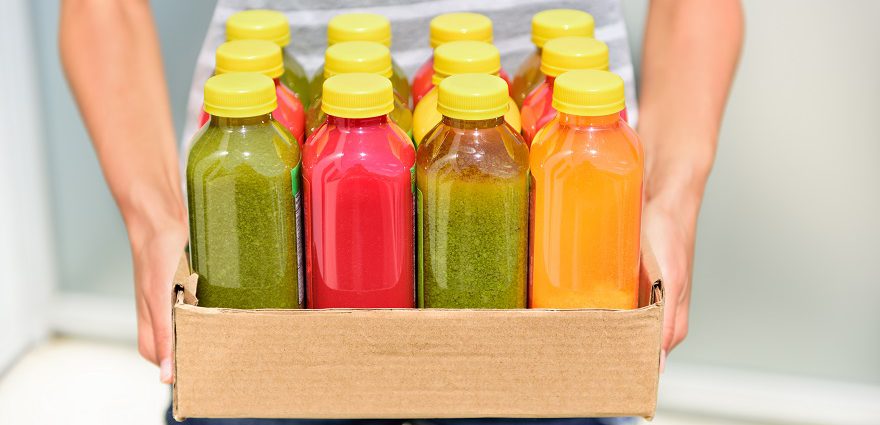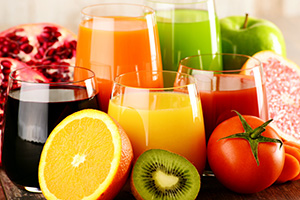Too Much Juice: Why Cleansing and Weight Loss Surgery Don’t Mix

In case you haven’t heard, dieting is out and detoxing is in. Detoxifying juice cleanses are everywhere these days, from the front pages of women’s magazines and center stage on talk shows all the way to your front steps — as many popular cleanses actually deliver the juice to your door.
There are almost too many cleanses to name. There’s Juice Press, Organic Avenue, Master Cleanse, Ritual, BluePrint and Cooler cleanse, not to mention a host of DIY ones. There are even pricey detox getaways and spas for cleansers who wish to do their juicing away from home in a state of bliss.

Cleanses can last for a few days or longer than a week. Some promise weight loss and health, while others promise clarity and renewed energy. In general, the juice washes everything else out of your system to allow you to reboot, recharge and detox.
But are they safe and what role (if any) do they have for people considering weight loss surgery or those who have already had a bariatric procedure?
While each cleanse has its own set of merits and potential risks, the message is the same for all current and former weight loss surgery patients, and it’s “cleanser beware,” says Joseph J. Collela MD, FACS, a bariatric surgeon in Pittsburgh, PA, and author of The Appetite Solution: Lose Weight Effortlessly and Never Be Hungry Again.
“We don’t always know what is in some of these cleansing products, and some of the ingredients, including herbal preparations, could compromise the results of weight loss surgery if ingested before the procedure,” he says.
There’s also the whole sugar situation, Collela explains. Juice fasts — even the all-veggie ones — tend to involve large amounts of sugar. The juicing process concentrates the natural sugars in the vegetables. “Sugar drives appetite through the roof,” says Dr. Collela. All this sugar also is linked to higher levels of disease-causing inflammation. Sugar is a set-up to fail for people trying to lose weight, maintain that loss and lead healthier lives.
If you are thinking about bariatric surgery or have had it in the past and have plateaued in your weight loss efforts, skip the cleanse and focus on what you know works, adds Lori Rosenthal, M.S., R.D., C.D.N., a bariatric dietitian in the Department of Surgery at Montefiore Medical Center in the Bronx, New York.
“Cleanses are short-term fixes for long-term problems,” she says. “You want to make changes that last a lifetime before surgery so by the time you get to the surgery you know how to eat properly” she says.
After surgery, cleansing can cause dumping syndrome — which is about as pretty as it sounds. Marked by nausea, vomiting, cramping and diarrhea, dumping occurs when the contents of the stomach empties too quickly into the small intestine.
Weight gain is another risk for post-bariatric surgery cleansers, says Rosenthal. “Juice doesn’t fill us up so we will get calories from food and drink.” Put another way, drinking leaves us less satisfied than eating.
After surgery, it’s important to limit the amount and quality of calories consumed to lose weight and avoid post-surgical side effects. “Protein helps build muscle and aids in post-surgery healing, and most juices don’t have any protein,” she says.
Sherri Brennan, RD, a nutritionist at The Chicago Center for Bariatric Surgery at Westlake Hospital in Melrose Park, Ill., agrees. “Choose nutrient-dense foods that are high in protein after surgery,” she says. Whether because of a limited diet or the fact that certain weight loss surgeries limit the absorption of important nutrients, people who have had bariatric surgery are at risk for nutritional shortfalls. “Cleansing could make these worse,” she says. “Don’t jump on the cleansing bandwagon.”
Instead talk to your surgeon or registered dietician. He or she can make sure that you are getting enough nutrients in your diet and help troubleshoot any issues you are having with losing weight and/or keeping it off.


